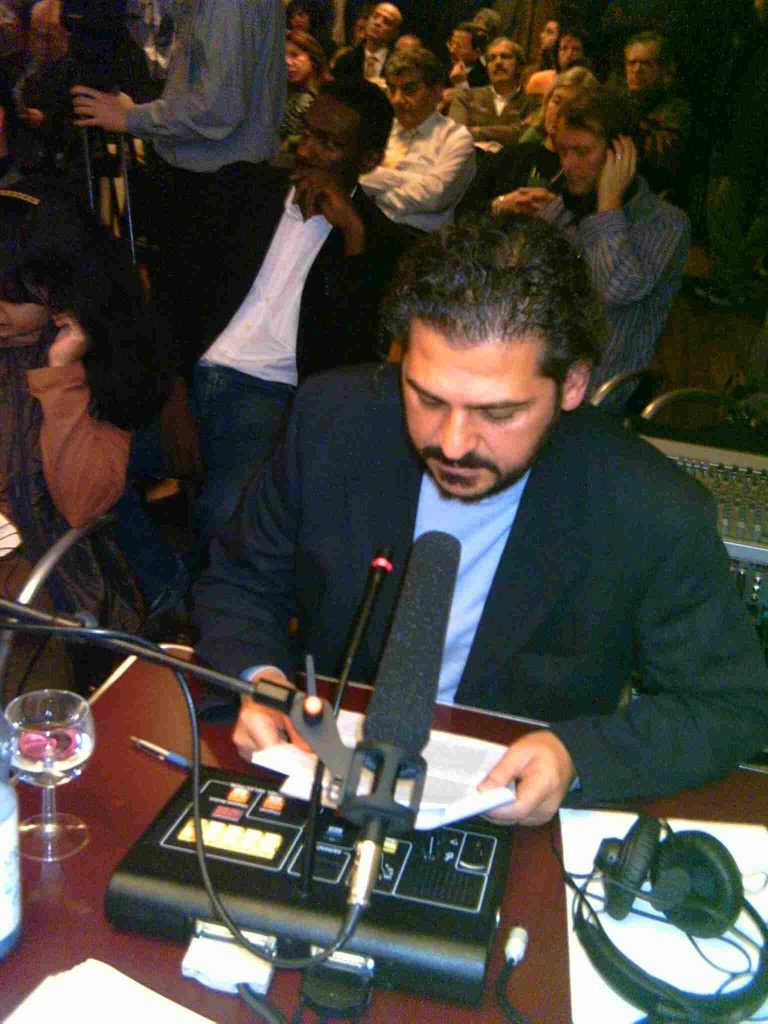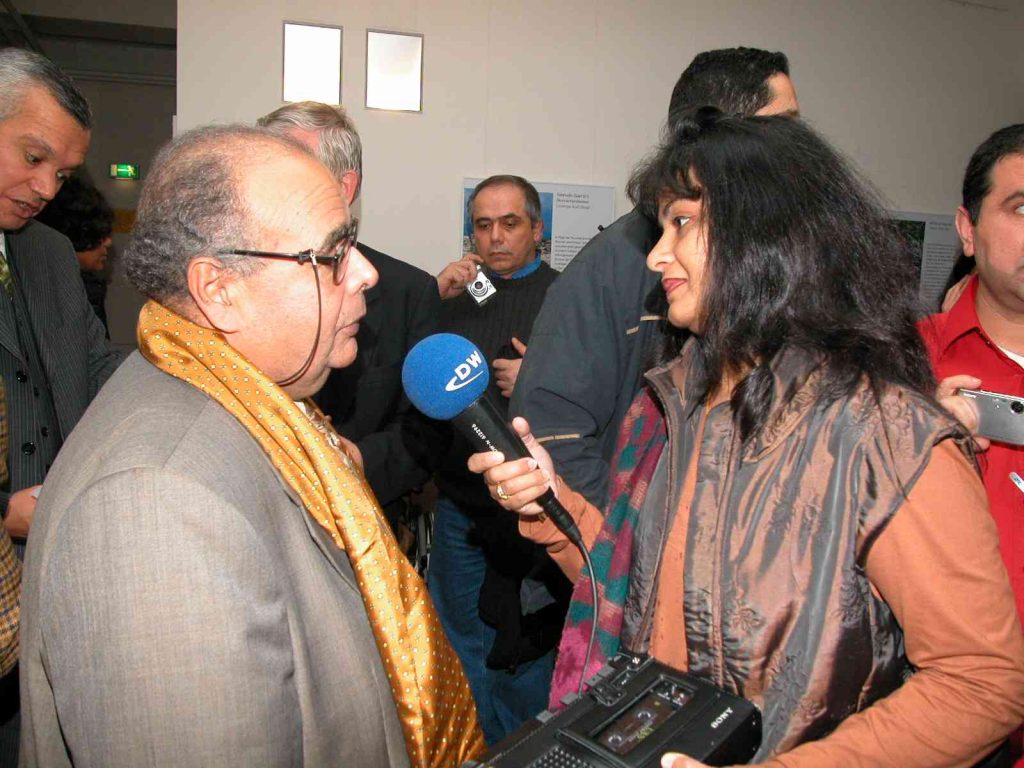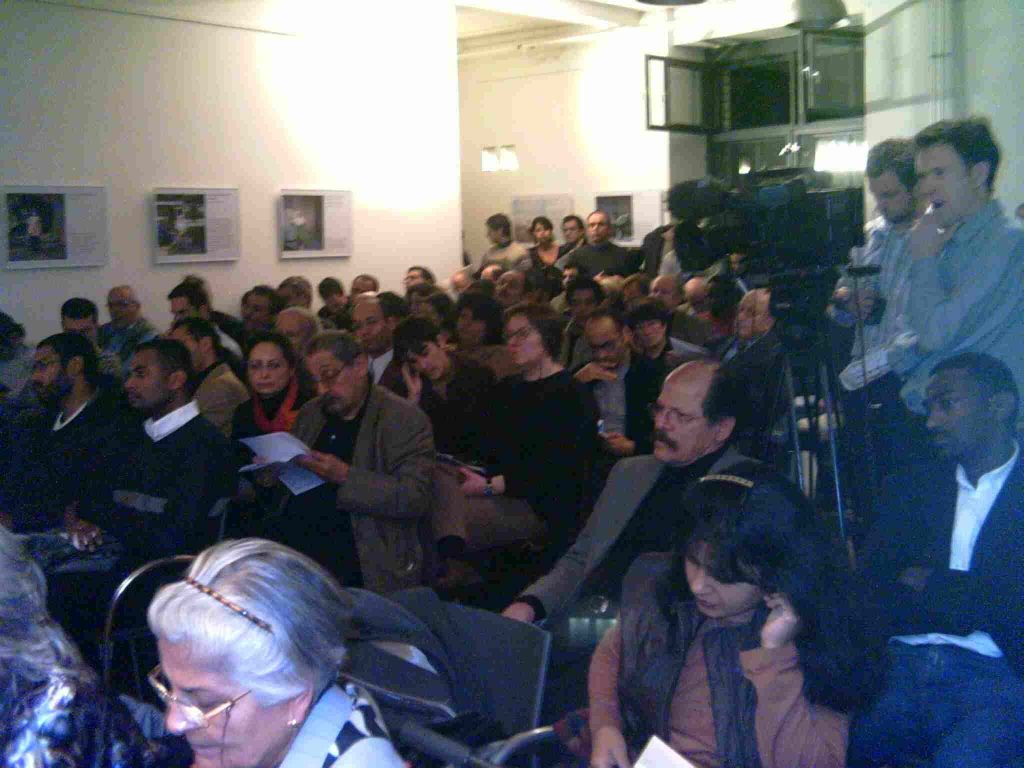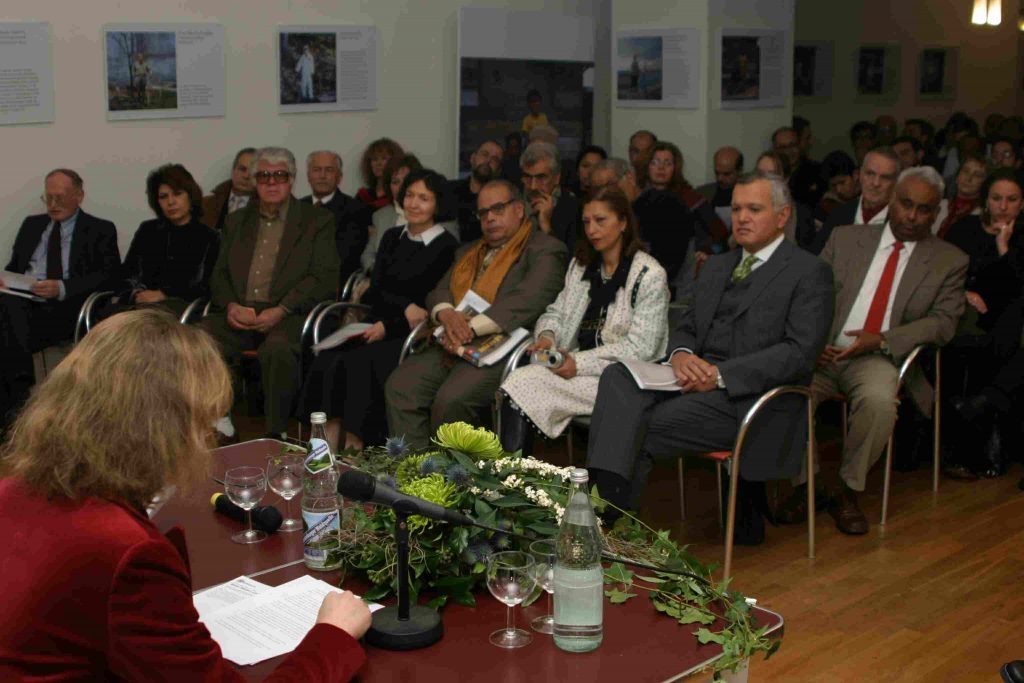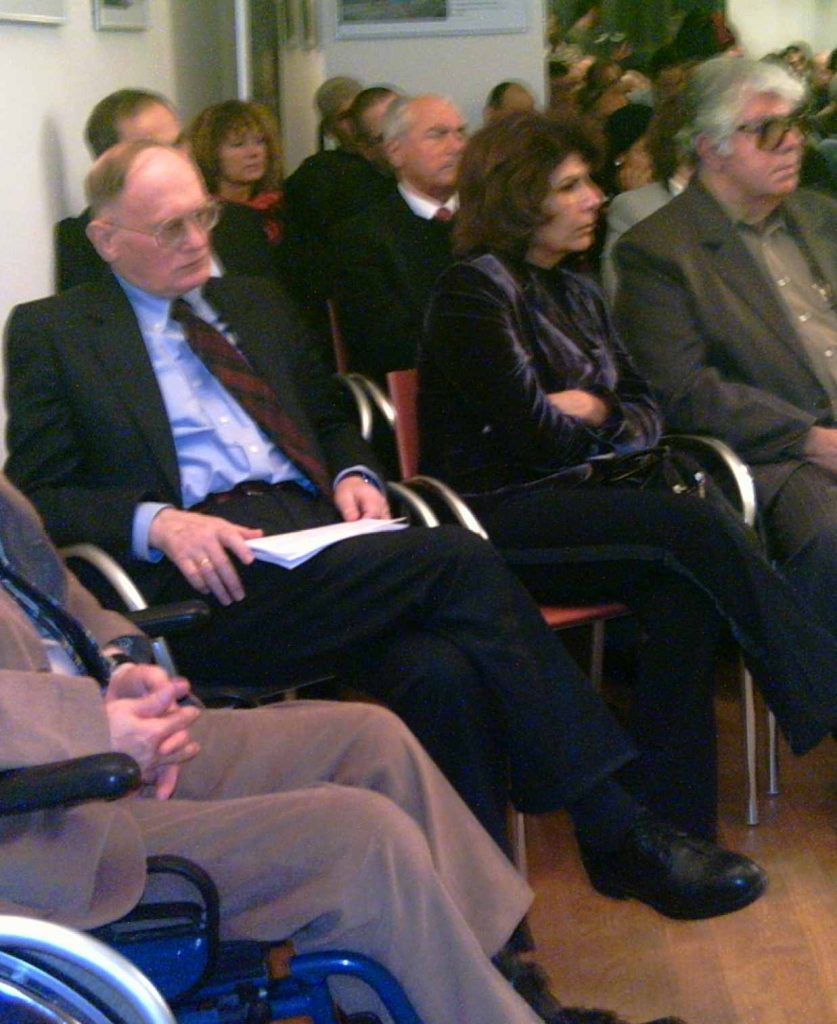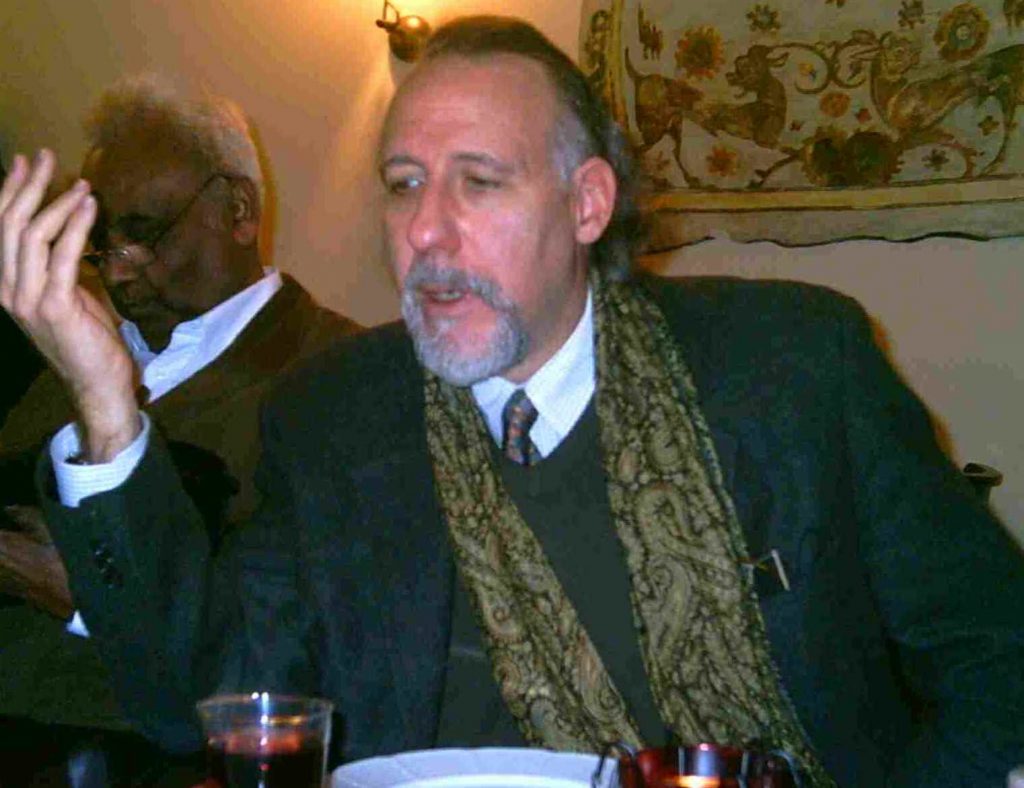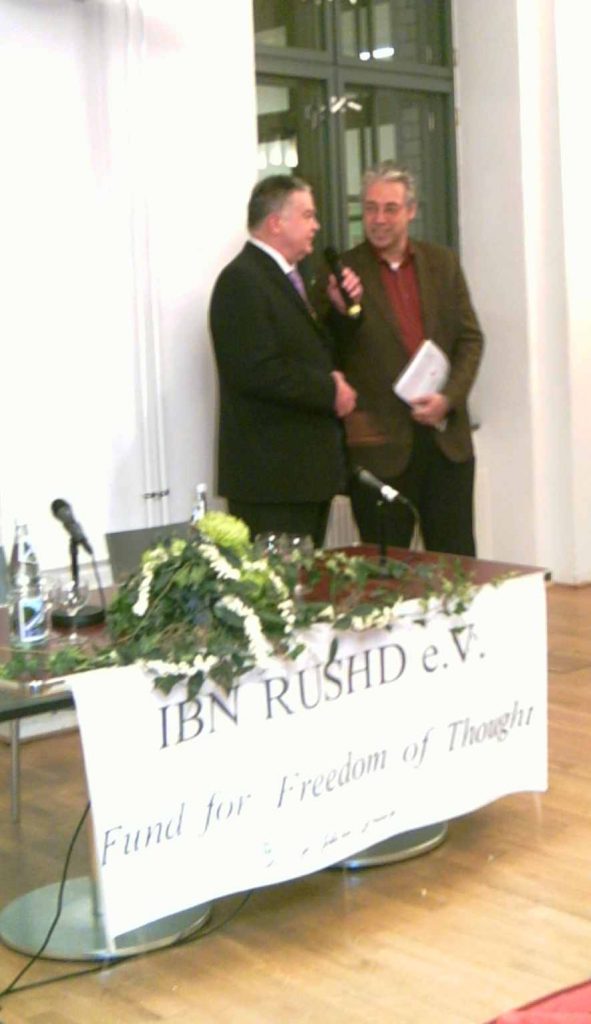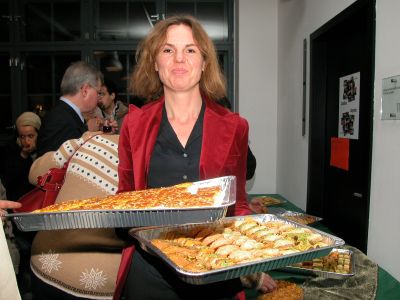Nasr Hamid Abu Zayd
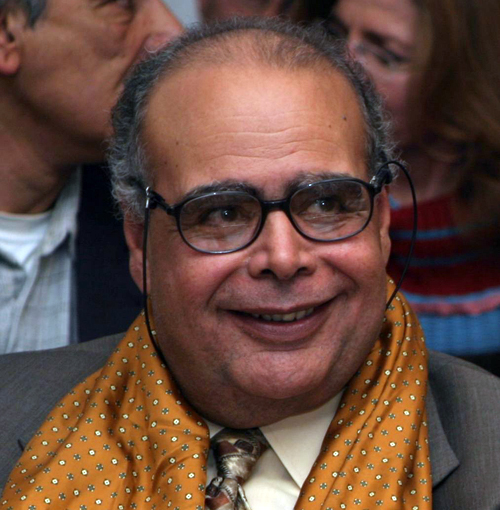
The prize was announced to be awarded to
an Arab scholar of Islam who strives for a fundamental reform of Islamic thought, and who works towards a reapprochement between Islamic tradition and modernity.
- Call for Nominationالعربية DeutschAnnouncement of the 2005 Ibn Rushd Prize Subject: Is Islamic Thought compatible with modernity? The Ibn Rushd-Prize 2005 calls for an independent reformer of Islamic Thought Is Islamic thought […]
- CV Nasr Hamid Abu Zaydالعربية DeutschCurriculum Vitae of Prof. Dr. Nasr H. Abû Zayd BIRTH: 10-7-1943, Tantâ, Egypt ACADEMIC QUALIFICATION: 1972: BA in Arabic Studies with Highest Honors from the Department of Arabic Language […]
- Members of the Jury 2005العربية DeutschMembers of the jury: Bin Salem Himmich Bin Salem Himmich, a Morroccan novelist and essayist, born 1945, is the author of more than 26 books in Arabic and French, […]
- The Ibn Rushd Fund mourns the death of the Arab thinker Nasr Hamid Abu Zaidالعربية DeutschThe Ibn Rushd Fund mourns the death of the Arab thinker Nasr Hamid Abu Zaid The Ibn Rushd Fund learned with great sorrow about the the death of the […]
Picture Report on the Ibn Rushd 2005 Awarding Ceremony
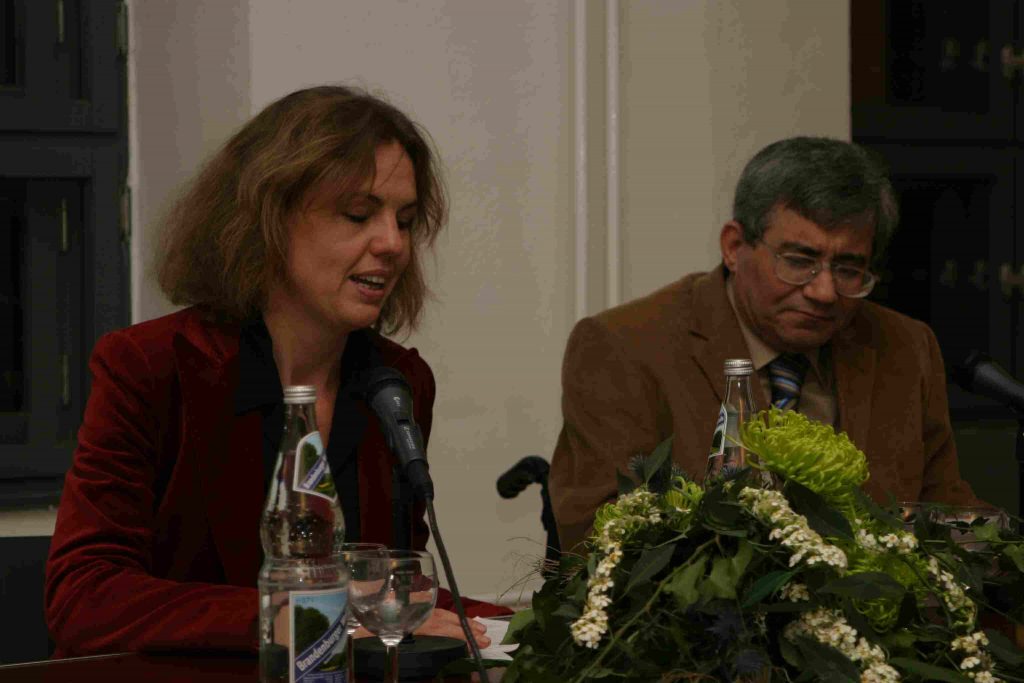
Cora Josting, founding member, Public Relations officer and adviser, and Said Alameddine, member of the Advisory Council give a welcome speech. “Candidates can be proposed by any person worldwide. An independent jury of experts which is appointed every year anew decides upon the prize winner. This procedure will hopefully activate as many Arabs in the World as possible to contribute to their culture so that a new political conciousness and atmosphere of hope will be fostered, to be able to join forces and have an effect on establishing freedom and democracy in the Arab world.”
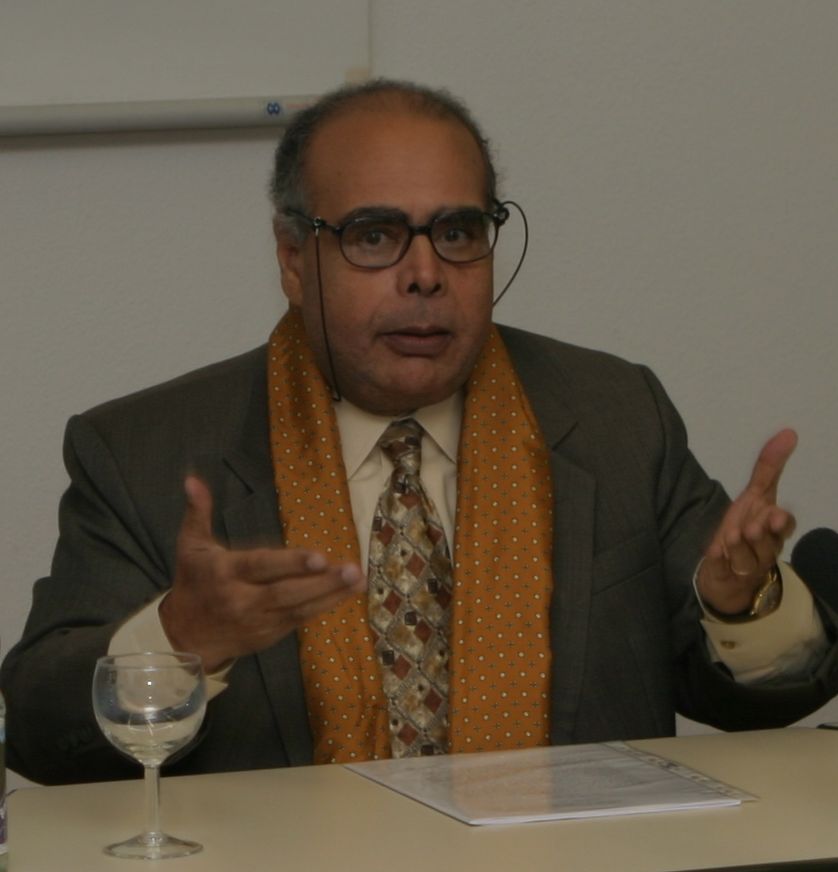
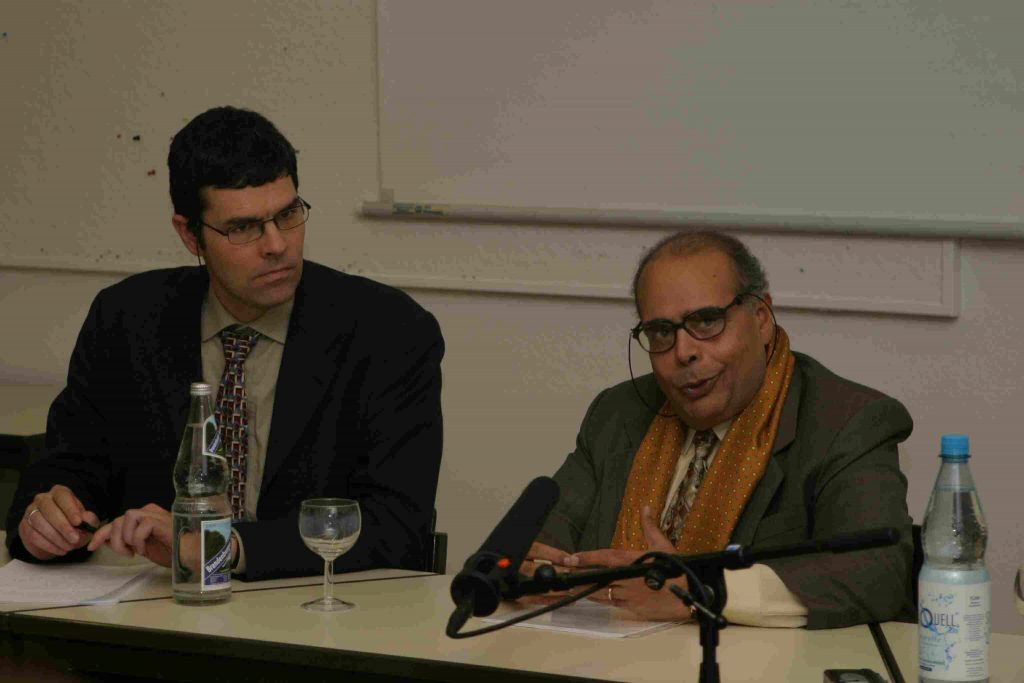
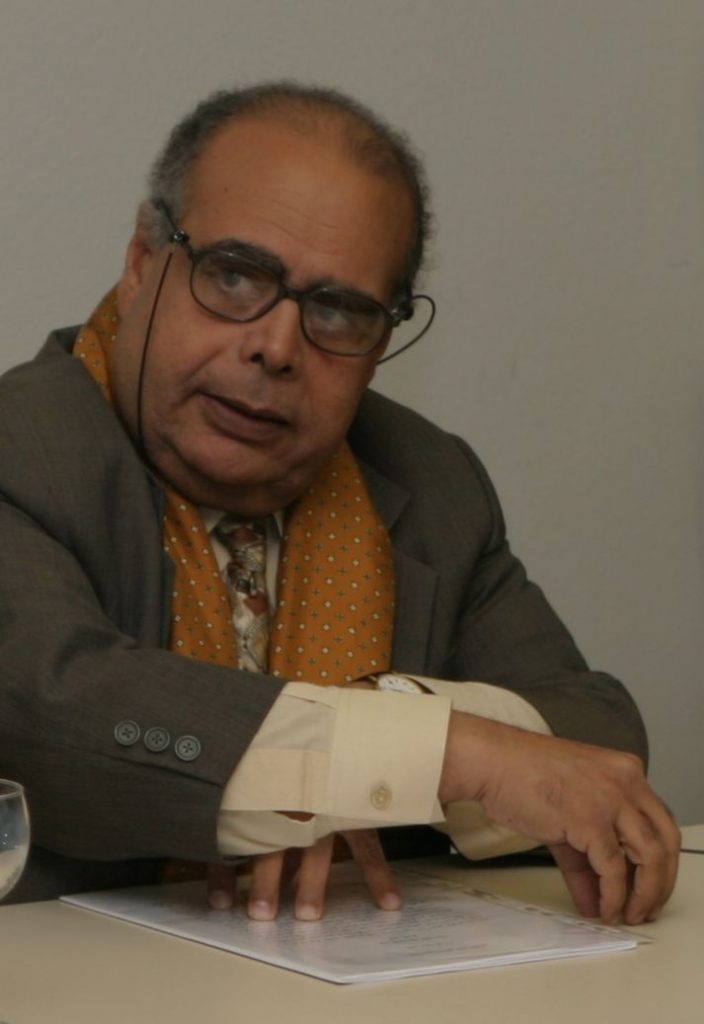
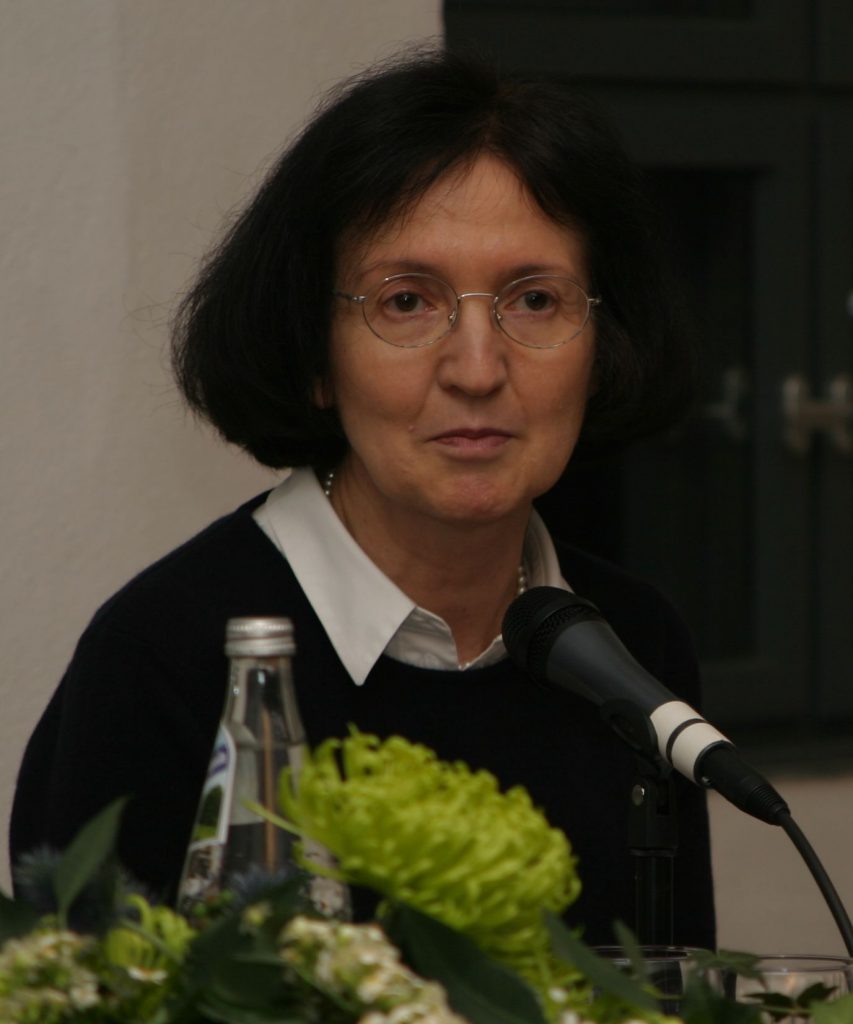
“Prof. Dr. Rotraud Wielandt (Islamic and Arabic Studies at the University of Bamberg) described the difficult stations in Abu Zaid´s academic career, which he began late in his life because of his modest social background. Main impulses for his work were Western theories of hermaneutics and semiotics (the German philosopher Hans Georg Gadamer, the Japaneese orientalist Toshihiko Izutsu). He also used literary theories for his understanding of the Koranic text (Jurij Lotman and Claude Elwood Shannon).”
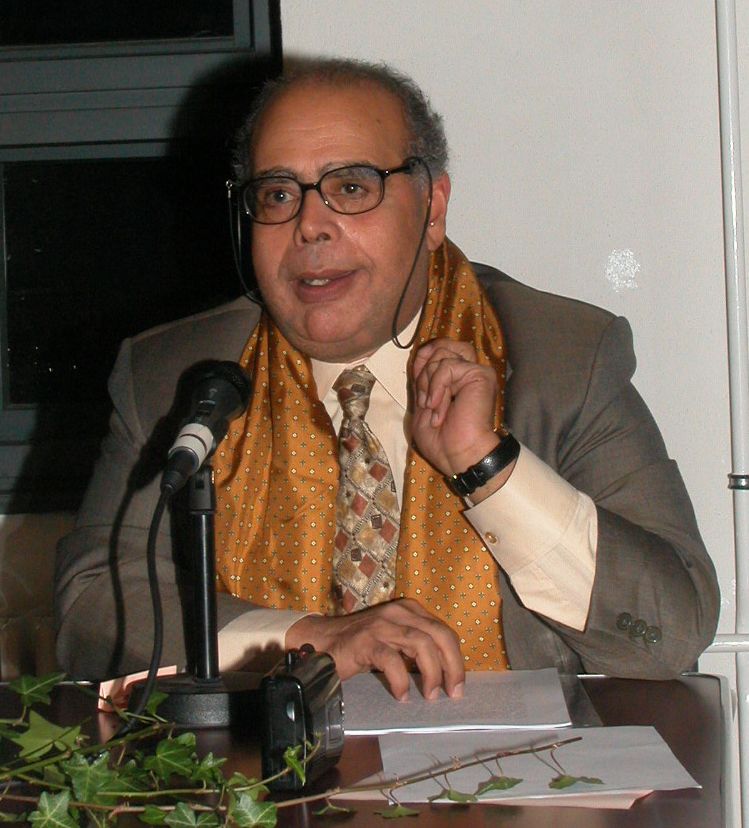
“To draw an analogy, according to this modell the understanding of a text is like receiving an encoded radio message. If the sender of the message wants his message to be understood, he must send it in a code that is known to the receiver. The Koranic revelation is so to speak God’s message in human language. But language gains its exact meaning mainly from human conventions, in which the whole social, cultural and historical horizon of those, who speak it, comes to fruition. Obviously even God had to use in the Koran the same language and cultural codes of his first receivers, so that He may be understood by them.”
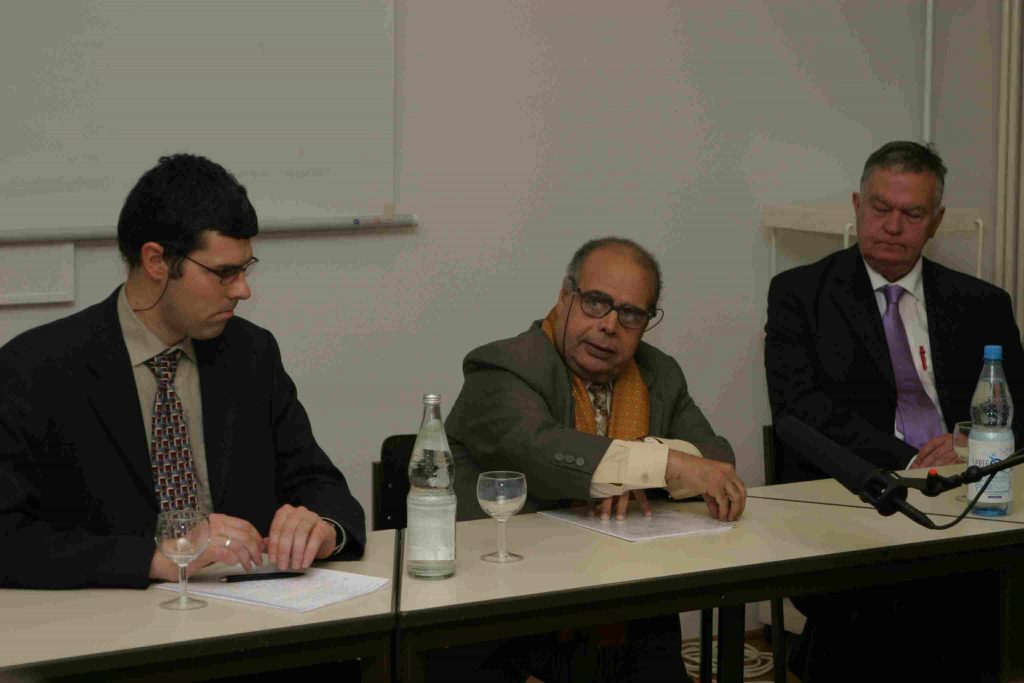
Preceding the celebration Hikmat Bushnaq-Josting translates the questions of the journalists at the press conference.
Foto from left to right: Hikmat Bushnaq-Josting, Nasr Hamid Abu Zaid, Nabil Bushnaq (President of Ibn Rushd Fund).
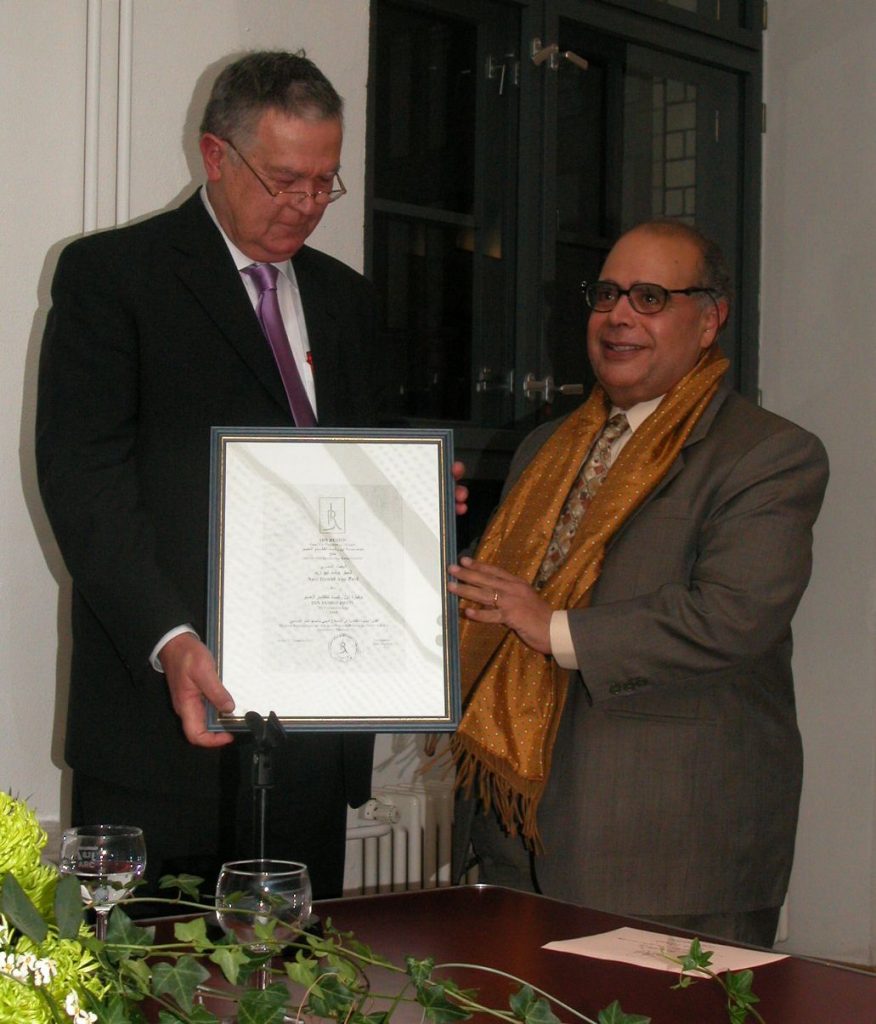
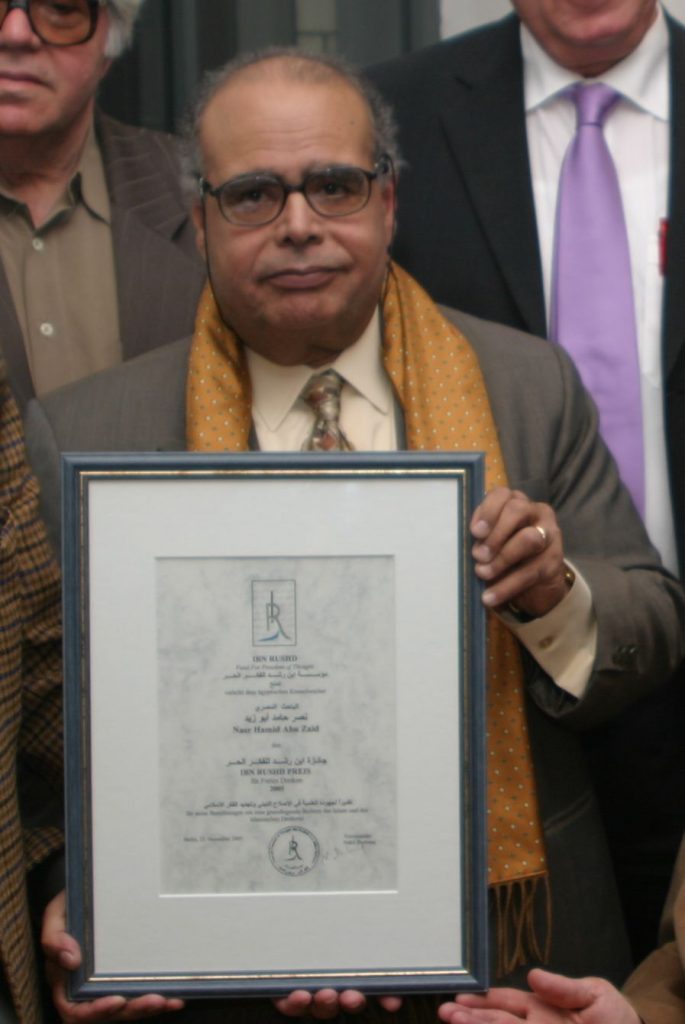
Nasr Hamid Abu Zaid after receiving the
IBN RUSHD Prize
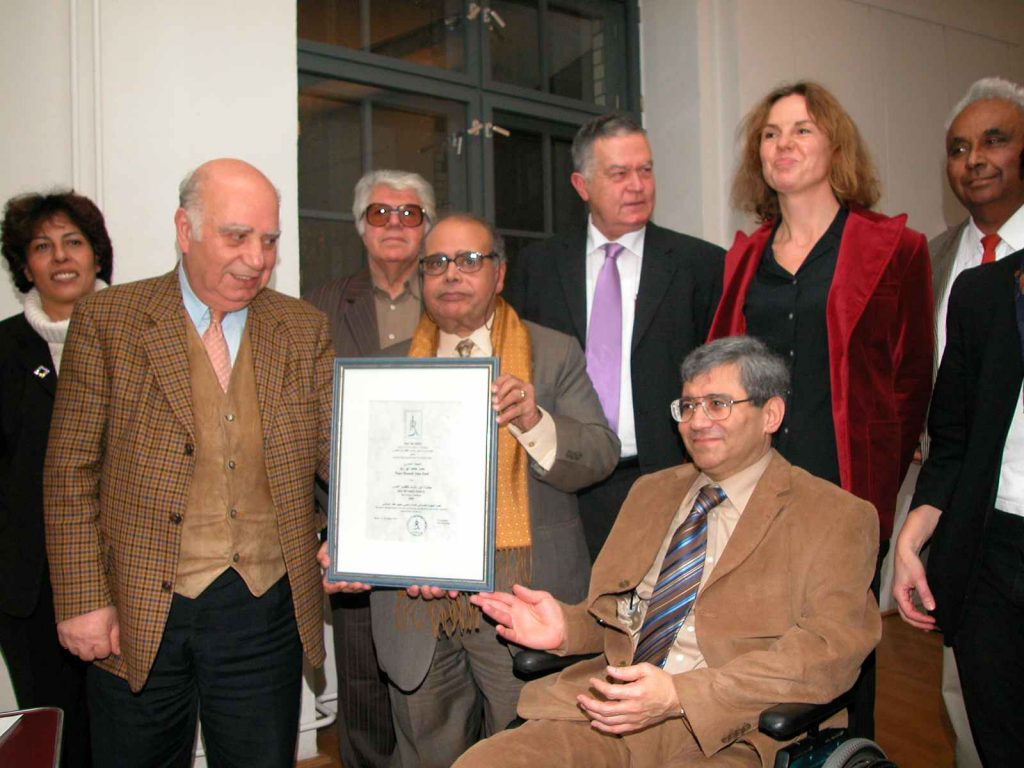
Second row: Prof. Zuhair Shunnar, Prof. Ibtihal Yunis (Abu Zaids wife), Shereen (Abu Zaid’s daughter), Dr. Abier Buhsnaq
Third row: Hikmat Bushnaq-Josting, Nabil Bushnaq (President of IBN RUSHD Fund), Cora Josting, Dr. Hamid Fadlalla.
